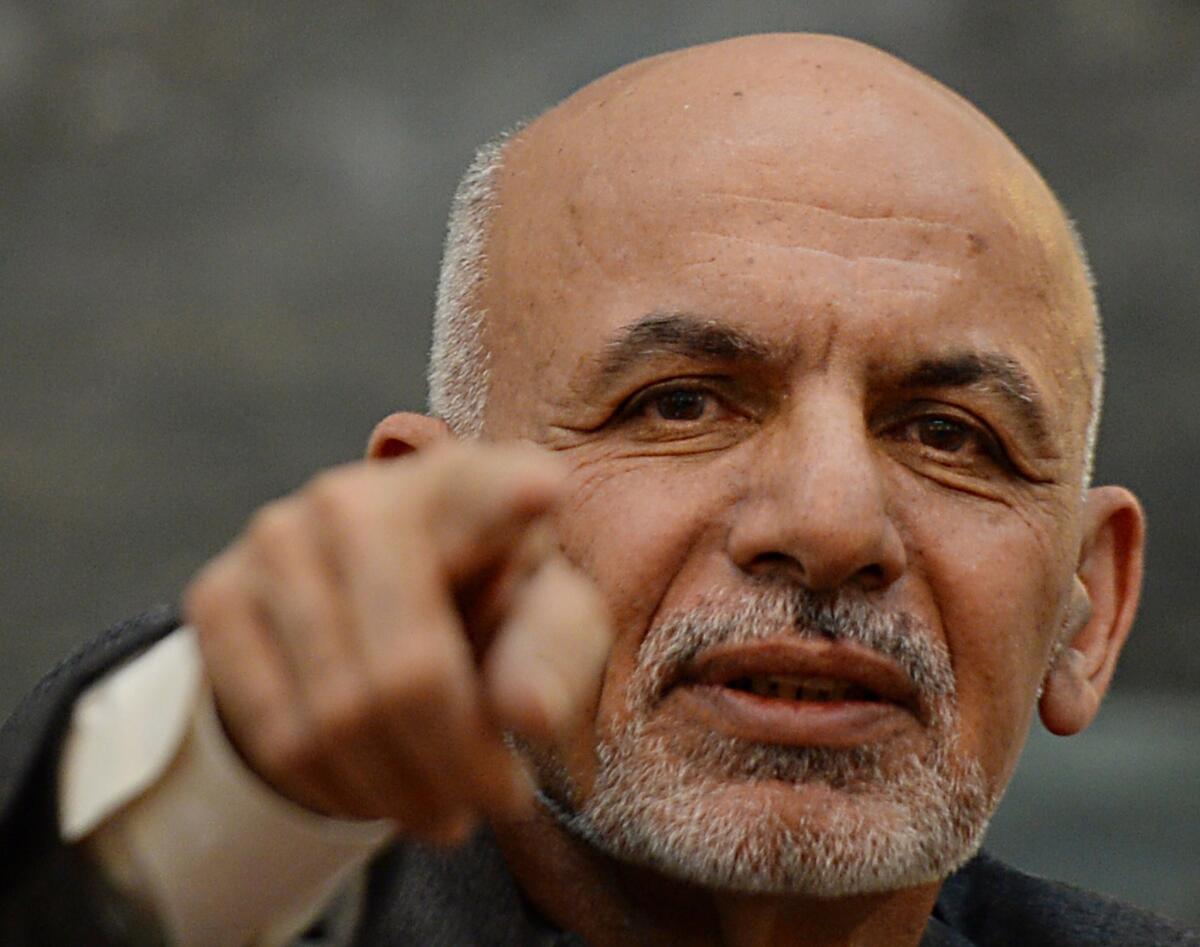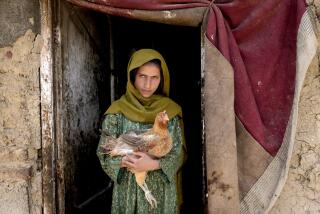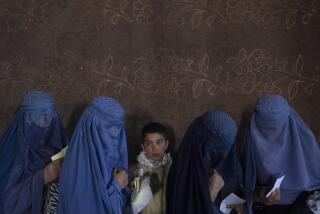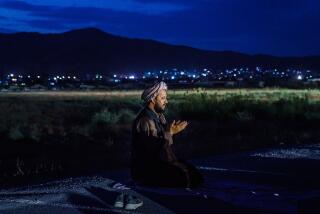Afghan group finds uneven progress in Ghani’s first 100 days

- Share via
Reporting from Kabul, Afghanistan — At the 100-day mark of President Ashraf Ghani’s tenure in Afghanistan, his national unity government has made uneven progress on the scores of promises he and allies made to an increasingly weary Afghan public, an independent watchdog group reported Tuesday.
Chief among the commitments he met were signing security agreements with the United States and NATO to keep a smaller contingent of foreign forces in Afghanistan starting this month, and reopening an investigation into the $900-million collapse of Kabul Bank, the nation’s largest private savings and loan.
But despite “rapid progress in the first 40 days,” according to the report, Ghani’s government has been set back by its failure to form a cabinet and worsening violence nationwide, including more than two dozen insurgent attacks in Kabul alone since his Sept. 29 inauguration.
The government has so far completed just four of 110 promises the group was tracking and made some progress on 23 others. But no progress has been made on pledges related to improving Afghanistan’s moribund economy, which was one of the main hopes Afghan voters held for Ghani, a former finance minister and World Bank economist.
The report was a nonpartisan project by Impassion Afghanistan, the country’s first digital media agency. It called the initiative Sad Roz, or “100 days” in Dari. It marked the first attempt by an Afghan non-governmental group to track political campaign promises.
The effort reflected the high expectations many Afghans had for the unity government, which was brokered in part by Secretary of State John F. Kerry at the end of a bitter, 10-month election campaign that was nearly derailed by accusations of widespread, government-assisted fraud. Kerry, former President Hamid Karzai and other leaders eventually persuaded Ghani and his election rival, Abdullah Abdullah, to form a unity government with Abdullah in the new post of chief executive.
Officials inside the presidential palace said Ghani was aware of the setbacks and acknowledged that the president has not been able to communicate his reform agenda to an increasingly disenchanted public. But the officials, speaking on condition of anonymity to discuss internal matters, said Ghani would soon roll out a plan to show a “marked change” in Afghans’ daily lives within months.
In a statement Tuesday, Abdullah’s spokesman, Javid Faisal, said that “a new cabinet will soon be formed and introduced to the people of Afghanistan. It is a priority.”
But as violence increases, many Afghans have grown weary of continued promises of a cabinet announcement.
Mohammad Modaser, a 27-year-old government employee originally from the eastern province of Laghman, said of Faisal’s statement: “We have been hearing this for the last three months.”
Although the Sad Roz initiative did not specifically track the impact of the cabinet stalemate on the government’s progress, lead researcher Azizullah Koshan said that “a government formed partially can only perform partially.”
The initiative compiled promises Ghani and Abdullah made during their respective campaigns, both in written manifestos and public statements, and selected those on which it believed measurable progress could be made in 100 days.
It praised the unity government for investing effort in improving governance and security, noting that Ghani asked a special commission to investigate the deteriorating security situation in the western province of Herat, and fired 30 senior officials in the province over corruption allegations.
Other achievements the group listed were the signing of a much-delayed law on access to information by the public and the merging of two bureaucratic offices within the presidential palace.
The signings of security agreements with the U.S. and NATO, Ghani said, marked the first time foreign troops would be allowed to conduct operations in Afghanistan at the behest of an elected government.
On his third day in office, Ghani reopened the Kabul Bank case, which resulted in a November appellate court decision that extended the prison terms of the bank’s former chairman, Sherkhan Farnood, and chief executive Khalilullah Ferozi from five years to 15 years.
In addition, a judge froze the assets of Mahmoud Karzai and Hasin Fahim, brothers of the former president and first vice president, respectively, over fraud allegations.
However, the status of more than $600 million in outstanding debts to the bank is yet to be made public.
In mid-December, the government’s High Peace Council, charged with outreach to Taliban insurgents, said it was ready to reopen talks with Taliban representatives in Qatar – which Ghani had pledged to do – only to retract the offer a week later.
Latifi is a special correspondent.
More to Read
Sign up for Essential California
The most important California stories and recommendations in your inbox every morning.
You may occasionally receive promotional content from the Los Angeles Times.













